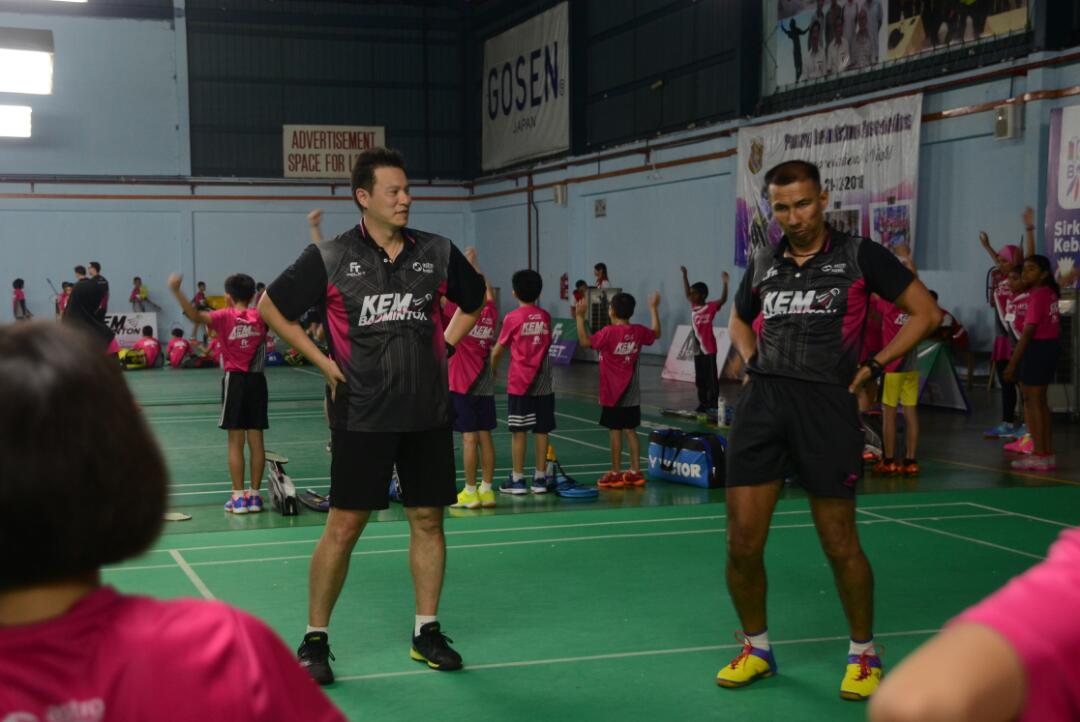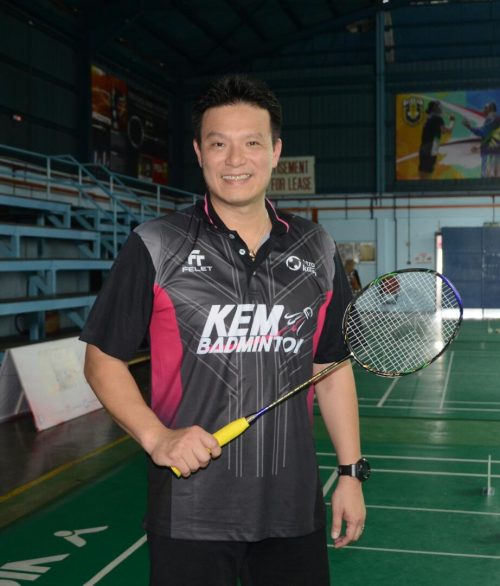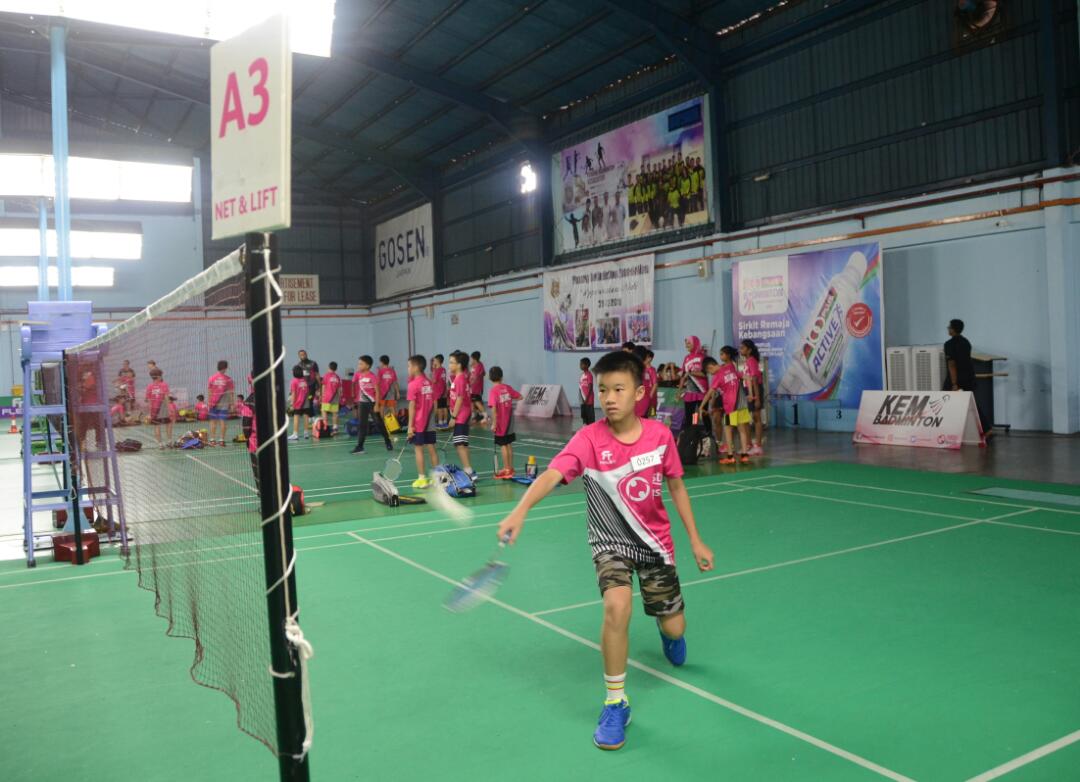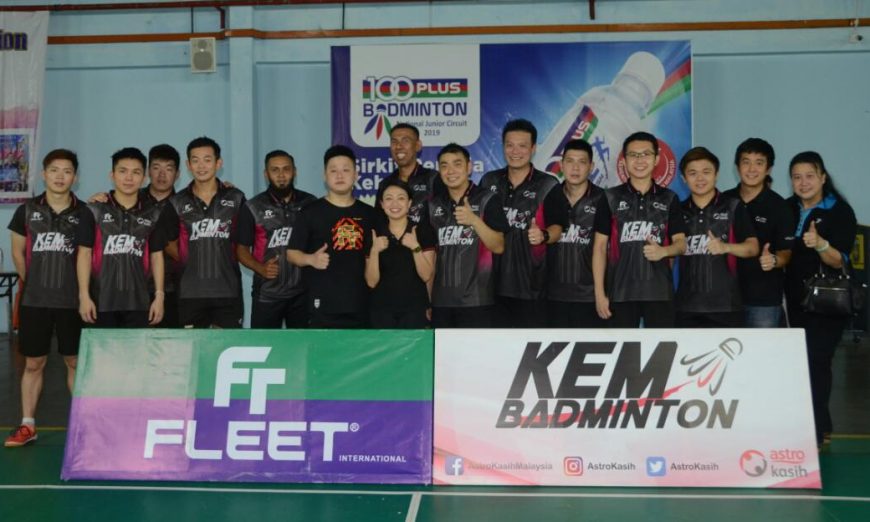FORMER national doubles shuttler Lee Wan Wah is looking forward to a new career as the national junior coach of the Nippon Badminton Association (NBA) beginning tomorrow.
After having represented the country for about 15 years and done some coaching, Wan Wah decided to give it a go when a call came from NBA head coach Park Joo-bong.
“For me, it’s a big challenge. I have been coaching after my playing days but not at the national level,” Wan Wah said during an Astro Kem Badminton at the Penang Badminton Association Hall recently.
“The Japanese BA set-up is different. Even if you are a national player, you have to go through a selection process. No automatic spot. It’s more merit-based unlike in BAM (Badminton Association of Malaysia). In Japan, even though if you are not selected this year, you can come back next year and you might get selected again.
“I think this is a good idea because players tend to have some good results and some bad results. So, the players selected to represent Japan are their best for that moment.”

Wan Wah is also well aware of the different culture in Japan. He relishes working with Joo-bong, a South Korean whose culture is in some ways similar to that of the Japanese when it comes to striving for sports excellence.
“I have known Joo-bong since 1999 when he became my coach. He was then Malaysia’s national doubles chief coach. He is my idol. He is a legend. When he was here (in Malaysia), I was so happy.
“The first thing he impacted me is his self-discipline. Even for the Japanese players now, if the coach does not tell you to drink, you cannot drink.
“When Malaysian players are tired, we tend to take a break to sip water. But Japanese players have to wait (for the coach’s green light). When I was young, I could not fathom why they were not allowed to drink despite being tired. I thought that was too harsh.
“But as I grow more mature, I began to see the reason behind it. The Japanese coach wants to toughen up the player mentally.
“Sometimes, when you are in a match and the umpire does not allow you to go out, you still have to play on. This is one of the good things we need to learn (from the Japanese). If it works, why not?”

Wan Wah said another difference between Japanese players and Malaysian players is their approach to their coaches at the end of their matches.
“Every time when Japanese players finish their match, they go to their coach, who will tell them about their performances. Malaysian players won’t look for their coach, the coaches have to look for the players.
“Malaysian coaches will follow their players to their warm down and have a pep talk. Our system is very different. But this does not mean disrespect to the coaches. Our culture is just different.”
Wan Wah has had a taste of the Japanese lifestyle before. He represented Tricky Panda Badminton Club in the Japanese Badminton League for five years from 2008 to 2012.
“The Japanese Badminton League is different than our Purple League. They have three tiers and each club can hire as many foreign players as they want. But only one foreign player is allowed to play in the doubles, not singles, during a tie which consists of one singles and two doubles for both men and women.
“Honestly, they don’t encourage their clubs to buy any foreign players. They want to promote the game locally and let their small clubs work their way up. They also want to promote their singles players.”
Tier One and Tier Two have eight teams each, while there may be more teams in Tier Three. Every year, the Tier Two champion and the bottom-placed team in Tier One will clash in a promotion-demotion playoff.
It’s not an easy career decision to make for Wan Wah, who has two sons, aged 13 and 11. His wife is a sales manager of a pharmaceutical company.
Wan Wah becomes the second Malaysian to head to Japan. Early last year, former national shuttler Jeremy Gan was their mixed doubles coach. Tan Kim Her, who recently stepped down as India’s national doubles coach, is tipped to join Jeremy and Wan Wah as Japan’s national doubles coach.
Wan Wah left BAM after competing in the 2008 Beijing Olympics and then became a professional independent player for three years before setting up the Pioneer Badminton Academy with Wong Choong Hann, the current BAM coaching director, Chan Chong Ming and Chew Choon Eng.
The quartet are now the head coaches of the Astro Kem Badminton. For Wan Wah, the experience in coaching at club level and also conducting coaching clinics will put him in good stead.
“Everything starts from the grassroots. We’ve been asking who the next Lee Chong Wei is. I believe the Astro Kem Badminton is a success. A very high percentage of our selected kids go on to Bukit Jalil Sports School while some get selected to the Singapore Sports School,” said Wan Wah.
At the Astro Kem Badminton in Penang on March 23-24, over 300 attended selection trials for 10 to 12 years old and 80 registered for the coaching clinic for seven to nine years’ old.
Wan Wah and his team of coaches, including Penang-based coaches like Ng Kam Fook and Lim Theam Teow, selected the players based on their basic skills, court movements, attitude and game play.

The badminton camp had moved to its second stop at Kota Baru (March 29) and would proceed to Johor Baru (April 5), Kuala Lumpur (April 13), Kota Kinabalu (April 20) and Kuching (April 27).
The final 30 selected would undergo a two-week training programme under professionals either in Malaysia or overseas this year.
Past selected players were given the golden opportunity to train at Li Yongbo Badminton Academy in China or the Nippon Badminton Association national training centre in Tokyo.
Over 15,000 boys and girls have participated in the programme since its inception in 2012. Run by Astro Kasih Foundation, Astro’s corporate social responsibility arm, it is aimed at unearthing talents and developing them into future champions.
When that happens, Wan Wah and company will surely be among those who feel fulfilled and proud.
Story by K.H. Ong
Pix by Alissala Thian

